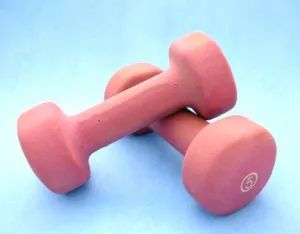
Be SMART When Setting Your Teen’s Weight Loss Goals
 I notice ads and commercials promoting how to live a healthier lifestyle and manage your teen’s weight. The messages explain to be active for 60 minutes a day and eat healthy foods. This is a great concept and I agree with it, but if I knew nothing about health and my teen told me they wanted to lose weight, I would wonder, “what specifically should my teen do?” Some teens may need 60 minutes of intense exercise and others may need 60 minutes of light exercise. This is the most complex and challenging factor in weight loss—everybody is unique in how they lose weight.In order to tap into effective weight loss, be SMART. SMART stands for Specific, Measurable, Attainable, Realistic and Timely. SMART goals are for parents to keep their teen on track to their weight loss goal.
I notice ads and commercials promoting how to live a healthier lifestyle and manage your teen’s weight. The messages explain to be active for 60 minutes a day and eat healthy foods. This is a great concept and I agree with it, but if I knew nothing about health and my teen told me they wanted to lose weight, I would wonder, “what specifically should my teen do?” Some teens may need 60 minutes of intense exercise and others may need 60 minutes of light exercise. This is the most complex and challenging factor in weight loss—everybody is unique in how they lose weight.In order to tap into effective weight loss, be SMART. SMART stands for Specific, Measurable, Attainable, Realistic and Timely. SMART goals are for parents to keep their teen on track to their weight loss goal.
SMART goals are used in a variety of business professions. In the weight management profession, when applying SMART goals it’s not applicable for a client to say, “I want to be a size zero!” Nor can they say, “I want to look like a bodybuilder with two percent body fat!” These goals are unrealistic, highly dangerous and far from specific for any teen to attempt. In short, they are a prescription for failure.
SMART goals have successfully helped individuals keep their eyes on the prize when seeking any behavior change. To make SMART goals is to make a task list. It is proven that those who make a list will much more likely stick to it and succeed. Follow with me as we go through each letter-step, as I, Geneva, say to my mother, “I’m ready to lose 20 pounds!”
- Specific - stating the overall goal and being as specific as possible:
- Geneva’s goal is to lose 20 pounds, which will be two pounds a week. She will achieve this goal by cutting ‘x’ amount of calories and exercising ‘x’ amount of times per week.
- Measurable – a measurable way to track progress:
- On Thursdays Geneva will weigh herself.
- Every third week she will take measurements of her hips, thighs, waist, arms and chest.
- Attainable – when the teen independently chooses to attain the goal:
- Geneva came to her mother and said she was ready to lose 20 pounds. She wasn’t pressured into it or forced to do it by anyone else.
- Realistic – every teen is different in their capabilities, so their goals must be realistic:
- If Geneva had been extremely inactive, 60 minutes of intense exercise would be very dangerous. She would need to be cleared by her doctor before beginning exercise. Then she could commit to 15 minutes of walking three times a week and work up to 60 minutes over the course of a few months.
- Timely – how long the weight loss will take:
- If Geneva starts on November 15, 2011 she will reach her goal by January 27, 2012. This goal of two pounds per week is very realistic.
- I would not recommend losing more than two pounds per week.
As I offer these tools to help your teen live a healthier lifestyle and lose weight, I only wish the very best results for them. As promised in my previous post, the upcoming posts will be education on calorie intake and how to help your teen begin exercising.
